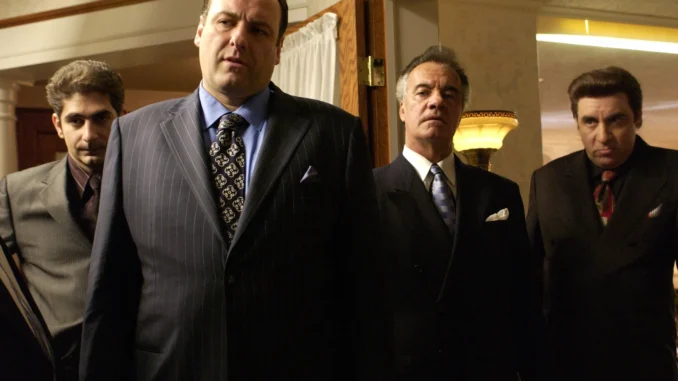
HBO’s Wise Guy: David Chase and The Sopranos serves as a retrospective look at one of the most iconic television series in history. However, while the documentary dives into the show’s creative process, character development, and its cultural impact, it strangely sidesteps a crucial aspect of The Sopranos: the representation of women and their roles in the mafia narrative. Let’s explore why this omission stands out and what we truly needed to see.
The Power of Female Characters in The Sopranos
More Than Just Supporting Roles
One of the most remarkable elements of The Sopranos is its rich tapestry of characters, particularly the women. Characters like Carmela Soprano (Edie Falco), Dr. Melfi (Lorraine Bracco), and even Adriana La Cerva (Drea de Matteo) brought depth and complexity to the narrative. They were not mere sidekicks or romantic interests; they were crucial to the story’s progression and often served as the moral compass in a world dominated by male anti-heroes.
Carmela’s struggles with her husband’s criminal lifestyle and her own ambitions showcase the tension between traditional roles and personal desires. Yet, the documentary glosses over how these women navigated the turbulent waters of a male-dominated world. This omission misses an opportunity to explore how their narratives shaped the overall story arc.
Complex Relationships with Male Characters
The dynamics between male and female characters in The Sopranos offer rich material for discussion. For example, Carmela’s relationship with Tony highlights the complexities of love, power, and betrayal. Meanwhile, Dr. Melfi’s therapeutic sessions with Tony provide a unique lens through which viewers can see the vulnerabilities of both characters. However, Wise Guy fails to delve deeply into these relationships, leaving a gaping hole in the documentary’s exploration of the show’s themes.
Dr. Melfi, in particular, serves as a window into the psyche of Tony Soprano. Her dual role as a confidante and a professional gives viewers insight into the mind of a man who is both powerful and deeply troubled. Yet, the documentary doesn’t fully exploit this dynamic, missing an opportunity to highlight how female characters not only complemented but often challenged the male characters’ motivations and decisions.
The Broader Implications of Gender Representation
Cultural Context and the Mafia Mythos
When examining mafia narratives, the focus typically centers on male characters, often sidelining the women who operate within or around these patriarchal structures. This trend is not just a storytelling choice but also reflects broader societal norms and expectations about gender roles. By neglecting to explore this dimension, Wise Guy misses a vital opportunity to challenge or reaffirm these stereotypes.
In The Sopranos, women like Carmela and Adriana are not just passive observers; they are active participants in the narrative. Their struggles mirror real-world issues that women face, particularly in relation to power dynamics in relationships and societal expectations. The documentary could have used their stories to foster a deeper conversation about gender in organized crime, moving beyond traditional portrayals to explore new narratives.
Impact on Future Storytelling
The failure to address these themes in Wise Guy raises questions about how we view and interpret crime dramas. As audiences become more aware of the importance of representation, there’s a growing demand for narratives that include diverse perspectives. By sidelining the stories of women in The Sopranos, the documentary risks perpetuating the same old tropes, ultimately missing a chance to contribute to a more nuanced understanding of crime and gender.
Future projects inspired by The Sopranos should take this into account. If Wise Guy had focused more on female characters, it could have set a precedent for more inclusive storytelling, encouraging creators to explore the untold stories of women in similar narratives.
What Wise Guy Could Have Explored
A Deep Dive into Female Perspectives
Imagine if Wise Guy had dedicated a segment specifically to the women of The Sopranos. Discussions with Edie Falco, Lorraine Bracco, and Drea de Matteo could have shed light on their experiences portraying complex characters. Their insights could reveal the intricacies of embodying women who navigate love, power, and loyalty in a male-centric world.
Highlighting behind-the-scenes anecdotes and exploring the creative decisions that went into developing these characters would enrich the documentary significantly. This kind of focus could not only elevate the conversation about The Sopranos but also inspire future works to consider the roles of women more thoughtfully.
Analyzing the Impact of Their Stories
Another angle Wise Guy could have explored is the impact these female characters had on the audience and the genre. How did Carmela’s struggle resonate with viewers? Did Dr. Melfi’s interactions with Tony change perceptions of therapy and mental health, particularly in the context of masculinity? By asking these questions, the documentary could have provided a more holistic view of The Sopranos’ legacy.
Real-World Implications and Discussions
Finally, a discussion around the real-world implications of the show’s portrayal of women in organized crime could have added depth. Interviews with experts in gender studies or criminology could help contextualize how The Sopranos fits into broader societal narratives about women and crime. Such discussions would not only enrich the documentary but also challenge viewers to think critically about what they consume.
Conclusion
While Wise Guy: David Chase and The Sopranos provides an engaging look back at the iconic series, it misses a crucial element that could have elevated the documentary: an in-depth exploration of female characters and their roles within the narrative. By neglecting to address the complexities and nuances of women in The Sopranos, the documentary falls short of its potential to challenge traditional gender narratives in crime storytelling.
As we continue to celebrate The Sopranos, it’s vital to remember that the stories of women deserve equal attention. Moving forward, we should advocate for narratives that include and elevate diverse voices, enriching the conversation around what it means to tell a complete story.
